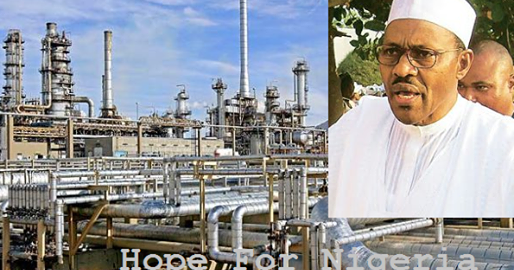Listening for the engines of navy boats hunting illegal refineries in the swamps of Nigeria’s Niger Delta, workers heat up crude oil in a tank next to a waterway.
The young men are ready to abandon their bush refinery at a moment’s notice. Nerves are on edge now that the military has started sending boats, jeeps and helicopters to destroy hundreds of such facilities in the country’s main oil region.
The government wants to prevent theft from oil company pipelines and so has turned its attention to shutting down the illicit refineries – makeshift, blackened structures of pipes and metal tanks hidden in oil-soaked clearings – that process the stolen crude.
But the security crackdown risks driving hundreds of young men from the refineries into the militant groups that have been attacking legitimate oil facilities in an attempt to force the government to allocate more money to the impoverished region.
Authorities have spent the last eight months holding peace talks with the militants, whose attacks in the Delta temporarily reduced Nigeria’s oil output by a third last year.
But community leaders say the talks will go nowhere unless the government legalizes the bush refineries, which support tens of thousands of people locally.
“The refinery is the only job I can find to feed my family,” said a father of three in his early 20s, standing next to a tank being filled with refined petrol.
“It’s very likely that we’ll end up as criminals if the army closes us down,” he said, asking not to be named as his business is illegal.
Reuters was given exclusive access to several makeshift refineries in Ogoniland in the Niger Delta on condition that their exact location was not disclosed.
In this area alone, the military has shut down more than 50 mini refineries in recent weeks, making hundreds of youths jobless. Some have threatened to burn down the houses of community leaders in revenge.
The Chief of the Naval Staff, Vice Admiral Ibok-Ete Ibas, said the navy had destroyed a total of 181 illegal refineries last year, arrested 748 suspects, and confiscated crude oil and diesel worth 420 billion naira ($1.3 billion).
DELTA AVENGERS
The oil pipelines that criss-cross the Delta suffer from being broken into by thieves who steal the crude, and also from destructive attacks by militant groups trying to make a political point.
Locals see the crackdown as a recruiting opportunity for the militants, who pay young men to blow up pipelines to force the government to meet their demands. A major group, the Niger Delta Avengers, has threatened to call off a truce unless the government does more to end poverty in the region.
“My youths have found a way of surviving with crude (refining). It’s very difficult to ask them to stop this,” said Saturday Nuate, head of the Kegbara Dere community in Ogoniland. “People are very hungry.”
Officials have promised more spending and job training but projects gave been delayed because the government is suffering from a slump in the oil revenues on which it depends.
Unemployment in the swamps has shot up in the last few months as oil companies have responded to low prices by firing hundreds of workers, according to labour unions.
“It’s a time bomb,” said Annkio Briggs, an environmental activist. “The government should legalize the modular refineries so young people can make a living.”
There would also be less pollution if the bush refiners bought oil legally instead of relying on crude stolen by breaking into pipelines, she said.
The mini refineries have been tolerated by local politicians, oil workers and army officers, who all benefit from their activities.
Those working at the makeshift refineries are often trained by friends working for oil firms, who also advise on how to build the equipment.
In addition, the refiners ease local fuel shortages, part of daily life due to Nigeria’s inefficient state-owned refineries.
WAR ON OIL THEFT
That climate of acceptance changed when President Muhammadu Buhari was elected in 2015, declaring war on oil theft as part of an anti-corruption drive.
The military campaign has intensified in recent weeks, forcing refiners to work at night so the smoke from the crude oil they process is harder to detect as it rises over the mangrove swamps.
At one clandestine facility, a dozen men pumped crude into a tank from a boat moored nearby. Its owner had taken to the bush on a motor bike – without lights to avoid detection – to check for military patrols.
A navy boat could be heard later, but after listening for a moment one worker said: “It’s cruising a different waterway.” Two weeks ago soldiers had destroyed a barge at the same spot.
Refinery owners say they make 2 million naira ($6,500) a month from producing petrol and diesel – the latter sought by hotels and shops forced to rely on generators during Nigeria’s frequent power cuts.
The refiners buy crude oil from gangs that drill into pipelines or from corrupt oil workers. A tank of 200 litres of oil costs around 500,000 naira ($1,600).
“We can process one thousand litres a night,” said a refinery owner, watching his workers siphon freshly produced petrol into cans to be taken by motor-cycle to traders who will sell it on.
He accepts he will have to pay bribes to the authorities. Buhari has made it more difficult for soldiers to profit from the illicit trade but some still manage to do so.
“I twice got workers freed who had been detained in raids by paying 100,000 naira ($330) each time,” he said. After work is over at dawn, the workers dump the waste crude, adding to the massive pollution in the creeks.
“We could dispose of the waste better or even turn it into more products if this was legal,” he said. “But since we are on the run we just dump it.”









